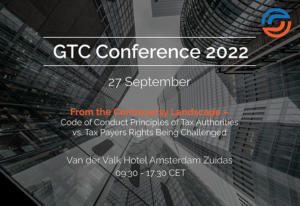STEVE CHILUNDU
Staff Reporter
Economists and tax experts have faulted Treasury for introducing tax policies that are not favourable in attracting Foreign Direct Investment (FDI) in the country.
However, Treasury downplayed the assertions that the country is worse off in terms of its taxation regime saying there are a lot of specific incentives offered to both local and foreign investors based on the nature of the business.
Currently the private sector particularly the manufacturing industry pays 90 percent tax on production and profits, a development that has triggered debate on the sustainability and profitability of businesses.
Just this week, one of the players in the manufacturing industry Castel Malawi Limited expressed fears of closing its business following Malawi Revenue Authority’s (MRA) action to freeze the company’s account in demand of the 90 percent excise tax remittance.
In an interview on Wednesday, economist Collen Kalua described the current taxation regime as not conducive to attract foreign direct investment.
He said it is unbelievable to learn that companies are taxed 90 percent excise tax for both production and profits wondering how such companies can survive in business.
Said Kalua: “You cannot tax a corporate organisation 90 percent on product and profit, it means that you leave that entity with nothing. It means the company is producing for the tax collector and not to sustain itself. How can the company sustain its production and other operations; how does it sustain its labour. In this way it’s the same like saying just close down.”
Actually in southern Africa Malawi has a very notorious tax regime, even on tax imports and exports it is very exorbitant. If you have a stiff tax regime for both local and multinational companies what happens is that multinationals will pack and go which sends a bad signal to prospective investors. They would compare tax rates and decide to invest in a country that has a favourable tax regime.
For local companies he said they would close and sit back to wait for the review of taxes in future which he said would be at the expense of economic growth.
He advised that Treasury and relevant ministries should consider introducing tax freebies to investors just like the case was previously with Carlsberg Malawi and other companies.
Kalua argued that tax policies need to be reviewed through Parliament to make it attractive to investors.
Treasury spokesperson Davies Sado on Wednesday said government’s tax policy is tailored to make Malawi a good investment opportunity country.
He said: “We have put in place several tax policy measures aimed at coaxing and making it habitable for the business sector. For example, just to mention a few, we have incentives like capital allowances priority industries incentives, we have the initial investment allowance, we have the industrial rebate, all these were put in place to create a conducive environment for doing business.”
Coming to the issue of the 90 percent that MRA imposes on production and profits, for instance, on the recent case with Castel Malawi, Sado said Treasury is aware of the issue and have been engaging the concerned parties.
“We will continue engaging them to see how best we can reach a compromise for both parties. We have scheduled on-going meetings to iron out the issues at hand,” said Sado.
When it was put to him that the case may not be a concern to one individual company only since the 90 percent excise tax according to MRA needed to be complied by all players in the industry as a policy, Sado said government will see how best to move forward after engagements.
Tax expert Emmanuel Kaluluma this week faulted government for wrongly taxing companies due to their failure to interpret the taxation regime that was recently introduced and imposed on companies.
Kaluluma pointed out that within the national budget government changed the method of calculating the excise tax and the position of government has been that in previous years the calculation was interpreted but because of the current misinterpretation the excise rate is at 90 percent.
He emphasised that investors come in Malawi to make money and if they lose money through the tax system then it becomes hard to sustain business.
Said Kaluluma: “The MRA has been wrongly calculating the tax and instructed the banks to start deductions and that is where the war is coming from. The thinking was that the rate would come down because you can’t have it both. It’s like 90 percent initially paid for K1 million for production input and now they say the same 90 percent payable at K1.5 million inclusive of profits.
“If clients perceive a harsh tax system they don’t comply, so this is what we are facing now. It is advisable that government discusses this with the businesses because it is them who produce the money and if they think government is taking all their money, they can’t get motivated.”
He said passing on the 90 percent excise tax to consumers will make the company’s products uncompetitive saying with such rates, imported products will be cheaper than what is produced in the country.
The Malawi Confederation of Chambers of Commerce and Industry (MCCCI) in its first quarter economic review asked government to reduce or remove excise taxes which go as high as 90 percent, and introduce rural-based incentives for companies that want to invest in rural areas such as tax allowances, tax holidays, lower corporate or income tax, grants and subsidies.





